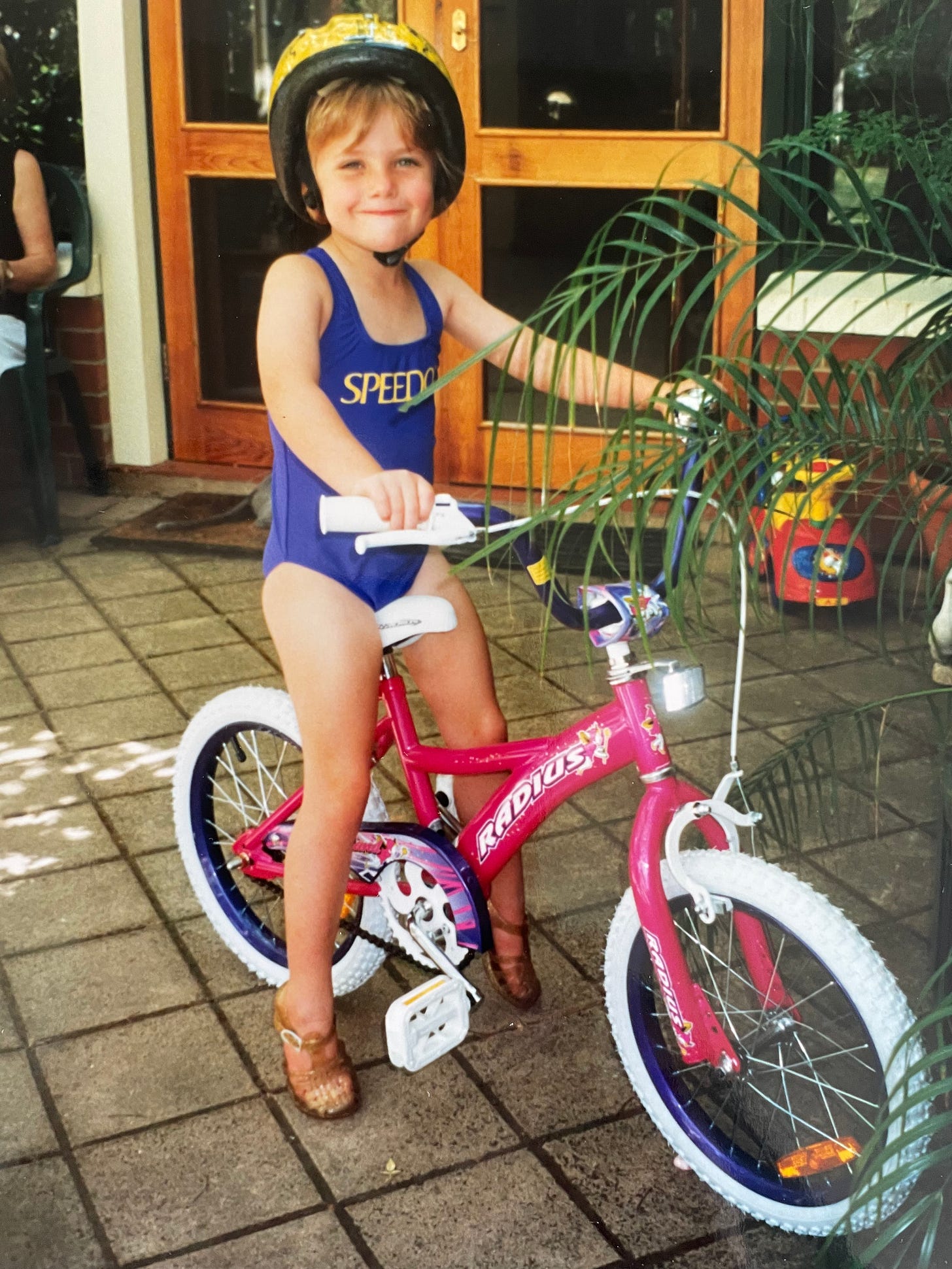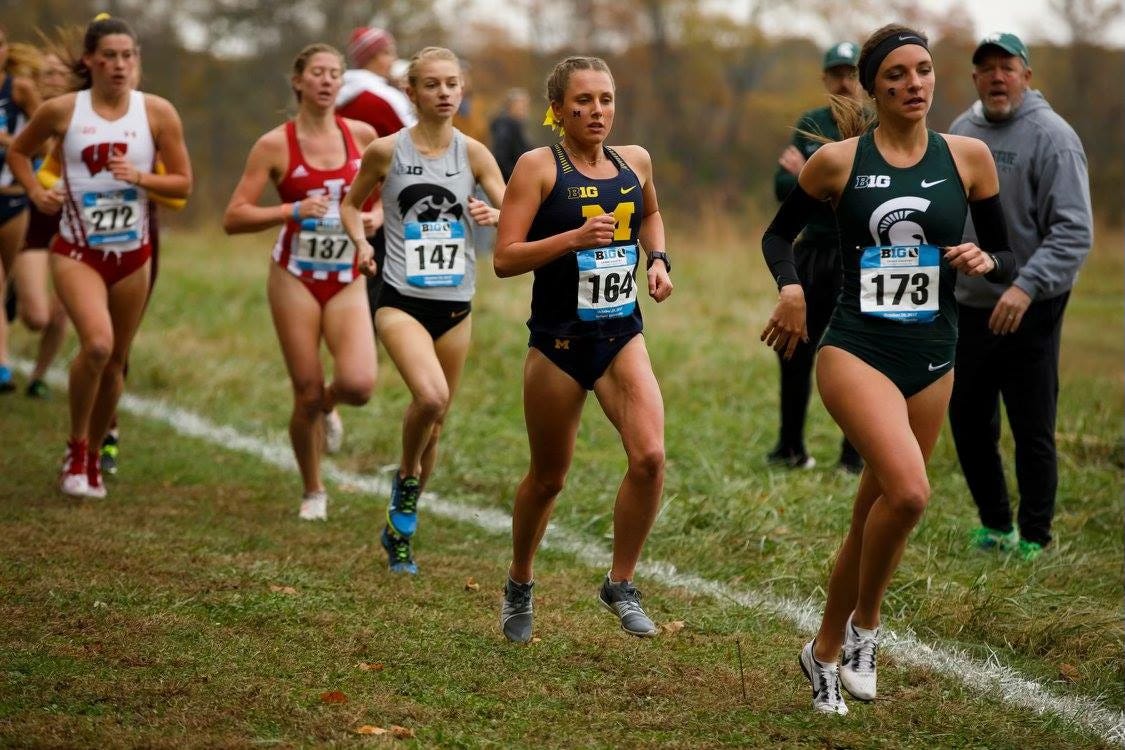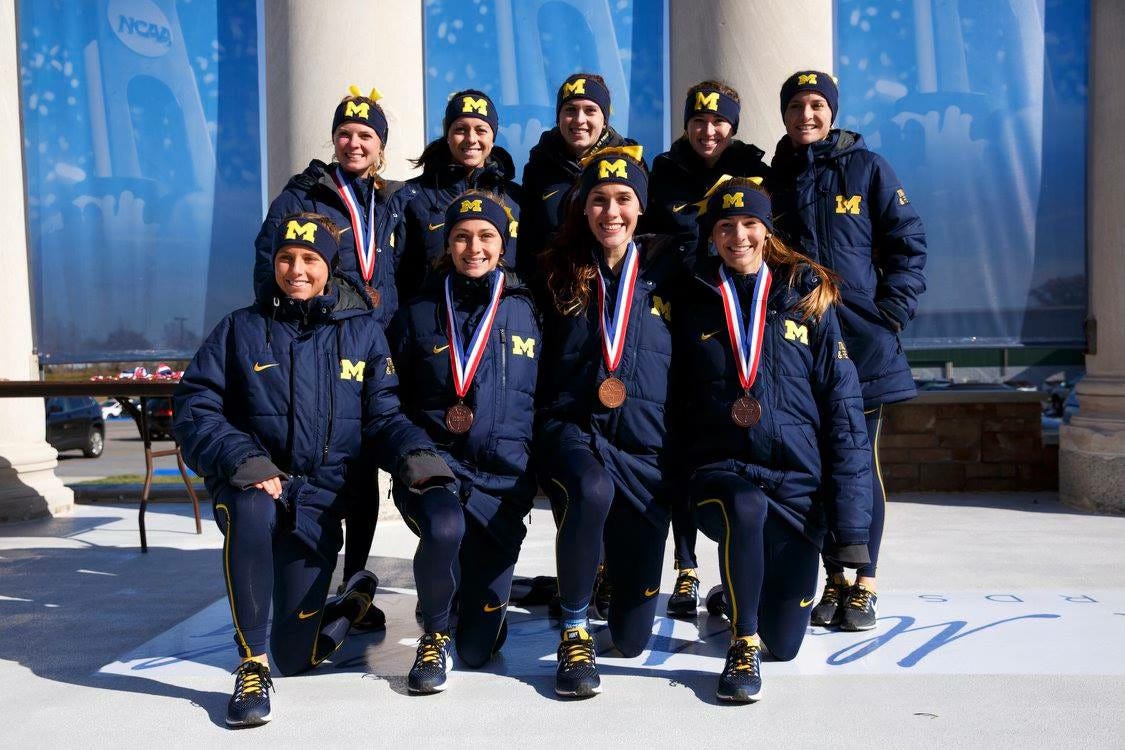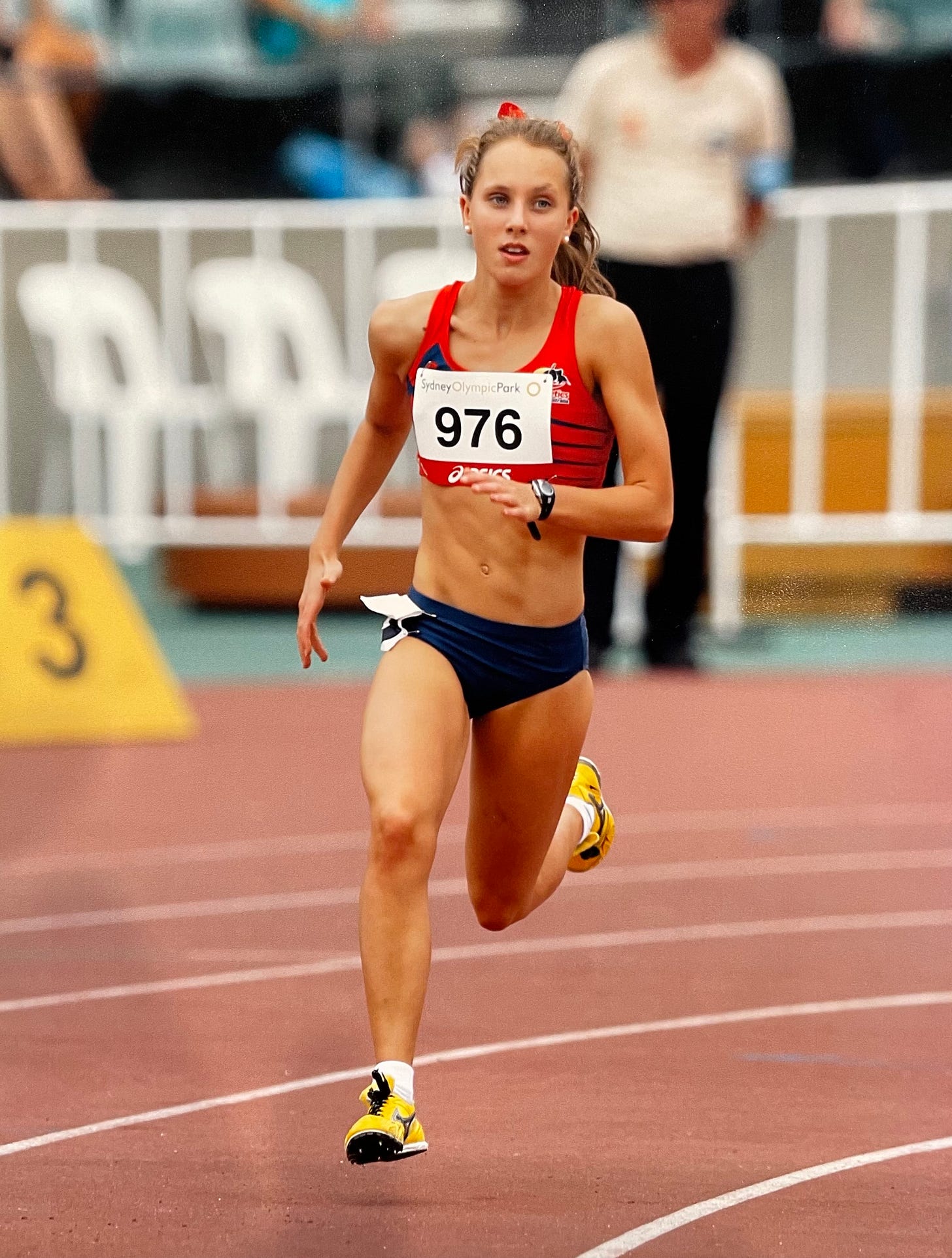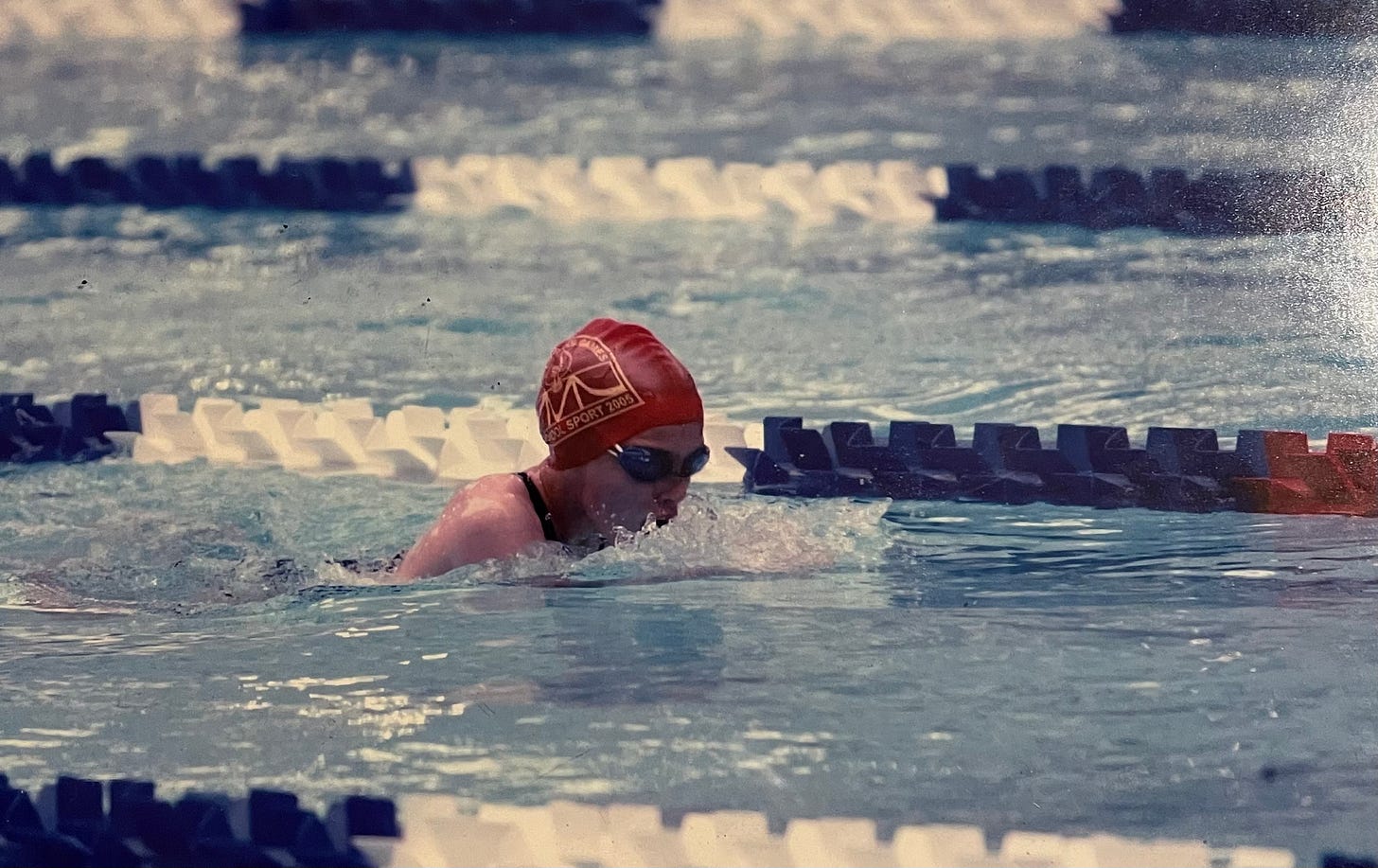Following her win at the Napier World Cup in February, I interviewed Sophie about her approach to triathlon.
Sophie is unique amongst the elite athlete crew in Boulder. She’s really fast and she works full time.
I figured we might be able to learn a thing, or two from her approach.
Tell me a bit about your early career and how you got started in triathlon.
My first tri was the Weet-Bix Kids series. I did that at 5 years old. I then took a long break from triathlon and focused on swimming and running.
In high school, my main event was the 200 Breast. At 18, I made Aussie Olympic Trials by 0.01 seconds for the 200 Fly. I also ran trials for the 1500m (I went 4:25-ish).
I was fast enough to make trials but I wasn’t fast enough to be competitive at the Olympic level.
So I headed off to the US for college. I went to the the University of Michigan where I ran 5K, 10K and cross-country. My collegiate career went better than Aussie trials and we were second team at NCAA XC Champs. Oregon won by one point!
After finishing my undergraduate studies, I took a masters degree in Human/Computer Interaction. With one year left in my masters program, I was finished with my collegiate eligibility so I decided to give triathlon a go. That was 2018.
In that first year, I had a podium at a Continental Cup and was 10th at the U23 World Champs. After a great start things slowed down for a bit.
2019 - I was still going strong winning races at the Continental Cup level.
2020 - I has visa issues and couldn’t leave the US.
2021 - I had an Achilles injury and didn’t race.
2022 - Went better, I qualified for the Commonwealth Games (was 5th) and started racing at the World Series level.
So you’ve always worked full time since graduating?
Part of my masters program involved a project for Wahoo, so I had my first job lined up before I finished school. In 2019, went straight in.
Initially I was 3/4-time. That lasted two months, though.
I didn’t see the difference between 3/4-time and full-time on my schedule. So I figured I’d go full-time.
Are you the first athlete with a full-time job to win a World Cup?
I don’t think so. In 2011, Gwen Jorgensen was working full-time when she won a World Cup. Later that year she went all-in with triathlon before making the US Olympic Team in 2012 and, eventually, winning gold in 2016.
How do you organize work when you travel to races?
I like to keep working up to a day, or two, before the race. I keep race week clear of meetings. Overall, I’m able to stay productive, which avoids obsessing about the race.
When I won in Napier, I was transitioning from Wahoo to my current position with SRAM. So, for that race, I had a little extra time off. The total transition was 3.5 weeks.
My plan was to race Abu Dhabi after Napier but the race was cancelled. So I came back to Boulder (via the Middle East) and got back into work and training.
What’s your take on being a working elite athlete?
At this stage, I could drop the job.
But…
I like to have something else.
If I put everything into triathlon then I might overtrain myself. The constraint of the job forces me to be organized with my training and puts downtime into my schedule.
I’m fortunate to have two companies who have been very supportive of my Olympic journey.
Key things to make it work:
Supportive Company
Not Customer Facing, I’m a product designer
Ability To Work From Home / Remote
The above are separate from the money, which reduces my overall stress and allows me to focus on what’s best for my race performance.
You trained through a Boulder winter and won a late-summer race in New Zealand. Any tips for racing far from home?
I don’t try to “pre-adjust” to the time zone. I fly business class and get to the venue early enough to adjust to the time and conditions.
For Napier, I arrived two weeks before the event.
What does your Basic Week look like? Do you need to make compromises with training load due to your job?
It’s similar to what everyone else does.
Swim: 5-6 sessions with 3 of those being “hard”
Bike: 5 sessions with 2 being “hard”
Run: 5 sessions with 2 being “hard”
Strength: 2x a week for an hour each time
That adds up to 25-28 hours per week with ~70km of run volume.
I do a lot of training on feel, for example, not all my bikes have power meters on them.
I have three days a week which are “easy.” Friday, Sunday and Monday have nothing hard and I don’t lift my heart rate on those days.
Sunday contains my long run which is done on feel, never HR. I’ll sit on 7:20-8 minutes per mile pace after I warm up. To put that in context, I ran 16:30 for my 5K off the bike in Napier (5:20 mile pace).
Some days, it’s challenging to get it all in. The after-work sessions can be tough but I’ve managed to keep it together and improve.
After Paris, I will take time to time to figure out what’s next. I have a bucket list of adventures I’d like to do with my boyfriend, Alexey Vermeulem.
You can follow Sophie Linn on Instagram.





